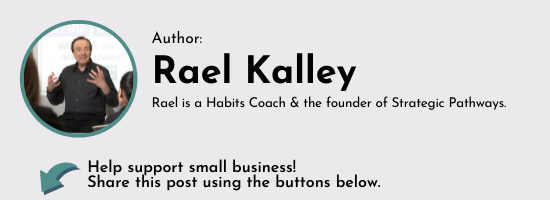How to Deal With Inappropriate Employee Behaviour
How do you deal with inappropriate employee behaviour?
We touched briefly on this topic last week, but it is one worthy of spending a little more time understanding the escalating effects of allowing inappropriate behaviour, and poor performance, to easily go unchecked.
In my many years of working with and observing managers at all levels interacting with their staff, it has become apparent to me that there is a common theme. Despite leading to higher levels of stress and frustration, many bosses unwittingly condone inappropriate employee behaviour.
You Must Deal With Conflict
Dealing with conflict is a necessary part of any manager’s job. I believe very few people go to work wanting to cause and deal with conflict. Yet as every manager knows, conflict is inevitable. As I often say, the issue is not if, but rather when conflict will occur.
This is further exacerbated because many managers unknowingly cause the probability of poor behaviour to increase because they are simply unaware of the role they are playing in ensuring its does so.
We have discussed the topic of consequences numerous times over the past few years. The word consequences is, in my opinion, one of the least understood and most commonly abused words in our entire lexicon.
Many of us, as native speakers of English, truly believe we know what the word means and yet, in truth, we don’t.
Dictionary.com defines consequence as:
1. the effect, result, or outcome of something occurring earlier: The accident was the consequence of reckless driving.
2. an act or instance of following something as an effect, result, or outcome.
Every Behaviour Has a Consequence
What this tells us is that there is no such thing as a behaviour without a consequence. What this means is until we really understand this, we continue to be complicit in the poor behaviour of others, including inappropriate employee behaviour.
The axiom, ‘what gets rewarded gets repeated’ is as true in increasing the probability of bad behaviour being repeated as it is in promoting the repetition of good.
There are four known types of consequences. Positive reinforcement, a term most of us are familiar with, is by far the most powerful and fastest acting of all consequences.
For this to make sense, it is helpful to understand the meaning of positive reinforcement. To be positively reinforced means to get what we want, and, as we know, when we give people what we want, they will keep doing what they’re doing.
The most common use of positive reinforcement is as a teaching tool to train people to keep doing what we don’t want them to do is to do absolutely nothing.
In the absence of feedback to the contrary, everything is positive reinforcement. Think about it, when we choose silence rather than addressing errant behaviour the moment we become aware of it, we are, in essence, rewarding the very behaviour we do not wish to see repeated.
We are giving the person displaying the behaviour exactly what they want and when we get what we want, as we have said already, we increase the likelihood of the behaviours being repeated.
It’s Time to Act On Inappropriate Employee Behaviour
People treat us the way we train them to treat us. As awkward and uncomfortable as that may be, it is the truth. When we choose to do nothing as the method with which to address an issue, we are now training that person to continue doing what they’re doing.
The old adage, fool me once, shame on you, fool me twice, shame on me, reminds us that by our silence we are now co-conspirators.
Which means, as managers, dealing with conflict – including errant performance – is not optional and can never be delayed.
An old Chinese proverb tells us, the best time to plant a tree was 20 years ago, the second-best time is today. The same is true for dealing with poor behaviour. The best time is right now.
Not tomorrow.
Now.
And NOW, is exactly when great managers do what needs to be done.
Till we read again.


